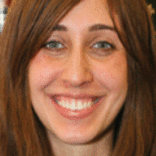I’m raising my Orthodox kids in the heart of New York City. The inequality we see every day should propel us to fight for others.
Published June 10, 2020
NEW YORK (JTA) — Someone very close to me shared openly that “Black Lives Matter is an important cause. But I don’t think it should be our priority. We have so many other causes to commit to.”
Within a two-block radius of our apartment building are hip cafes, bars and spas interwoven with a methadone clinic, veterans hospital, police station and shelters for the homeless. Our family, with six children, thank God, is swimming in privilege and blessed abundantly.
Our trips to the local library across the street entail scenes of adults semiconscious from trips to the methadone clinic down the block. Their walk to Madison Square Park two blocks away passes a housing facility for homeless who are mentally ill. Our religious community is transient — college students and young professionals who seek and explore, then leave for greener pastures.
We live here because my husband serves as the university chaplain and executive director at the Bronfman Center for Jewish Student Life at New York University, and we chose to serve and grow with the downtown Jewish community. Otherwise we might well live on the Upper West Side — not far away geographically but distant in terms of communal Jewish life — in Israel or in a suburban community, similar to where I grew up. There my children would experience the trappings of a typical Modern Orthodox community — with youth groups, teen minyans, candy handouts, shared Shabbat meals and trampolined backyards.
The interconnectedness of my own community of origin and others like it is inspiring — the mommy meals, shiva calls, shul kiddushes, chevra kadisha, eruv committees — and I’ve often grappled with the guilt of not raising our children there.
But I also know and appreciate that it is possible for my children to feel connected to others amid so much diversity — of race, religion, ethnicity — and also of access, food security, economic stability and housing.
Rabbi Norman Lamm of blessed memory taught:
When that famous boat was sinking and all the passengers except Jonah were praying, the captain rightly reproached Jonah with the famous and sharp words “Mah lecha nirdam?!” — “what are you doing sleeping?!”
He should have done as the others did — be concerned with the safety and security of his fellows, but instead he was not. One who is involved only in himself is a somnambulist who may give the illusion of being awake, but really is not.
It is not easy to stay awake. As a speaker, I know that as a persistent fact and a professional challenge. You need something to pull your interest away from dead center — namely, your self — and activate it, and engage it to some great cause or compelling ideal or transcendent goal or profound love. And what is it that, for the Jew, combines all these things — cause, ideal, goal, love?
May we be inspired to stay awake. We cannot abdicate the responsibility to look at our own actions and how we can promote equality, justice and equal opportunity for all.
I’ve grown to experience my walk through Union Square Park’s Greenmarket as my Shabbat meditation. The richness, colors and diversity of the colors, fragrances and languages are a musing on the complexity and variation of life. It is God’s consistent choice to foster this diversity.
We can open our eyes to the diversity in our own communities, regardless of the apparent range of that spectrum. And we also must have the capacity to open our hearts to those beyond our vision, but who share our world and are impacted by our slumber or action.

is school psychologist at SAR Academy.














